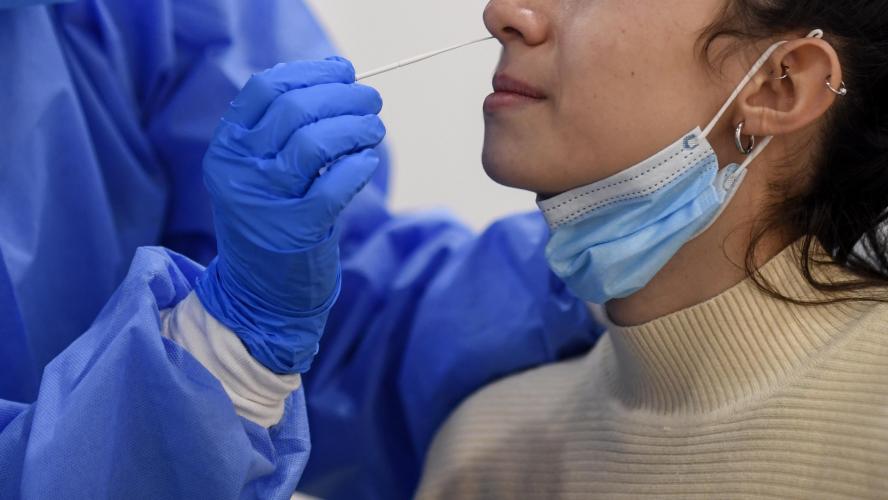Belgium aims to start testing people who do not show any symptoms of being infected with the coronavirus but have had a high-risk contact again, from 23 November.
The country's adapted Covid-19 testing strategy - in which only people with symptoms could get tested, to save on test material and to take some of the pressure off of laboratories - was set to end on 15 November, but will stay in place for at least one more week.
"We are going to start again with the testing of people who simply had a high-risk contact, not next week but the week after that," Federal Health Minister Frank Vandenbroucke told VTM News.
Related News
- Brussels wants to test people without Covid-19 symptoms again
- Explaining Belgium's new Covid-19 testing strategy
- New testing strategy will underestimate Belgium's rising infections
How this will be organised for the population is not entirely clear yet. "First, we are going to give the details to those who have to organise it on the ground. These are the general practitioners and others," Vandenbroucke said.
Additionally, the limited use of rapid antigen tests will also be possible from now on, health institute Sciensano announced in a press release.
The recommended use of these tests is currently limited to symptomatic patients with recent onset of symptoms (≤5 days), or low-risk contacts in case of a cluster study.
"Insufficient data are available for the use of these tests in other situations, and their use is therefore not recommended as false-negative results have major implications," Sciensano said. "Independent validation studies sometimes show large differences with the sensitivity and specificity stated by manufacturers."
Currently, this kind of rapid antigen test is only recommended for people who show symptoms and are in the emergency room.
Maïthé Chini
The Brussels Times

